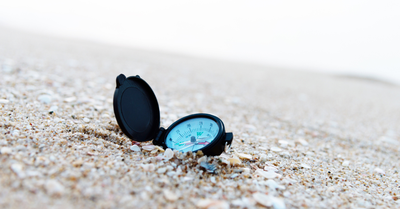God Has Placed the Earth in Our Hands
- Whitney Hopler Live It Editor
- Published Apr 09, 2002

Here are some ways you can help take care of the planet:
- Find out more about the ecosystem where you live. Then learn as much as you can about various aspects of the environment throughout the Earth - the different species of creatures God has made, the land and bodies of water, the air, and more.
- Study current environmental issues, such as air and water pollution, habitat destruction, climate change, population growth, soil loss, species extinction, energy use, waste production, and hunger problems.
- Spend some time out in nature to discover how awe-inspiring it truly is, then pray for an attitude of proper reverence for God's creation. Take some time to thank God for the gifts He has given you on the planet.
- Humble yourself. Remember that you are one of many creatures God has created, and that you are inextricably connected to other parts of the ecosystem. Understand how much you need to depend on the Earth's resources to survive (clean air and water, food, energy sources, etc.)
- Pray for the wisdom to know how to make environmentally friendly choices in all aspects of your life. There are many creative ways to incorporate a greater commitment to stewardship into your life, including recycling, reducing your consumption of material goods and utilities such as electricity and water in your house, cleaning up your local park, and becoming an advocate for the passage of laws designed to protect land or animals.
- Realize that all creatures have intrinsic value simply because God made them, regardless of how useful they prove to you. Seek to coexist peacefully with the creatures God has made rather than exploiting them. When using plants, animals, or other natural resources, do so out of an attitude of respect and gratitude. Be sure not to take more than you need or damage the resource's ability to be fruitful in the future. For example, when you cut down trees, cut only as many as you need, and try to plant more somewhere else.
- Live within or below your means. Be frugal and exercise self-restraint. Take the time to fully enjoy what you have.
- Think of the future. Make decisions shrewdly, considering how they will affect the Earth that future generations will inherit.
- Give people, animals and land the rest needed to rejuvenate. Don't work them too hard too quickly, or they will no longer be fruitful.
- Act in benevolence to protect creatures in danger, such as people in crises and animals threatened with extinction. Ask God to give you a deep love for other people and other parts of His creation.
Adapted from For the Beauty of the Earth: A Christian Vision for Creation Care, copyright 2001 by Steven Bouma-Prediger. Published by Baker Academic, a division of Baker Book House Company, Grand Rapids, Mich., www.bakerbooks.com, 1-800-877-2665.
Steven Bouma-Prediger (Ph.D., Chicago) teaches in the religion department at Hope College in Holland, Mich. This is his fourth book.
Are ecological issues important to you? Why or why not? What are some of the ways you're trying to help preserve and nurture the environment? What suggestions would you like to offer others who want to help take good care of the Earth? Visit Crosswalk's forums to discuss this topic by clicking on the link below.



















